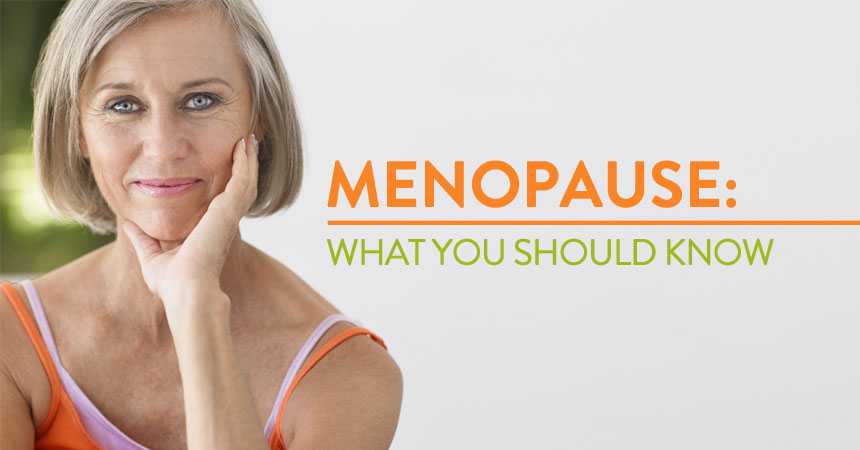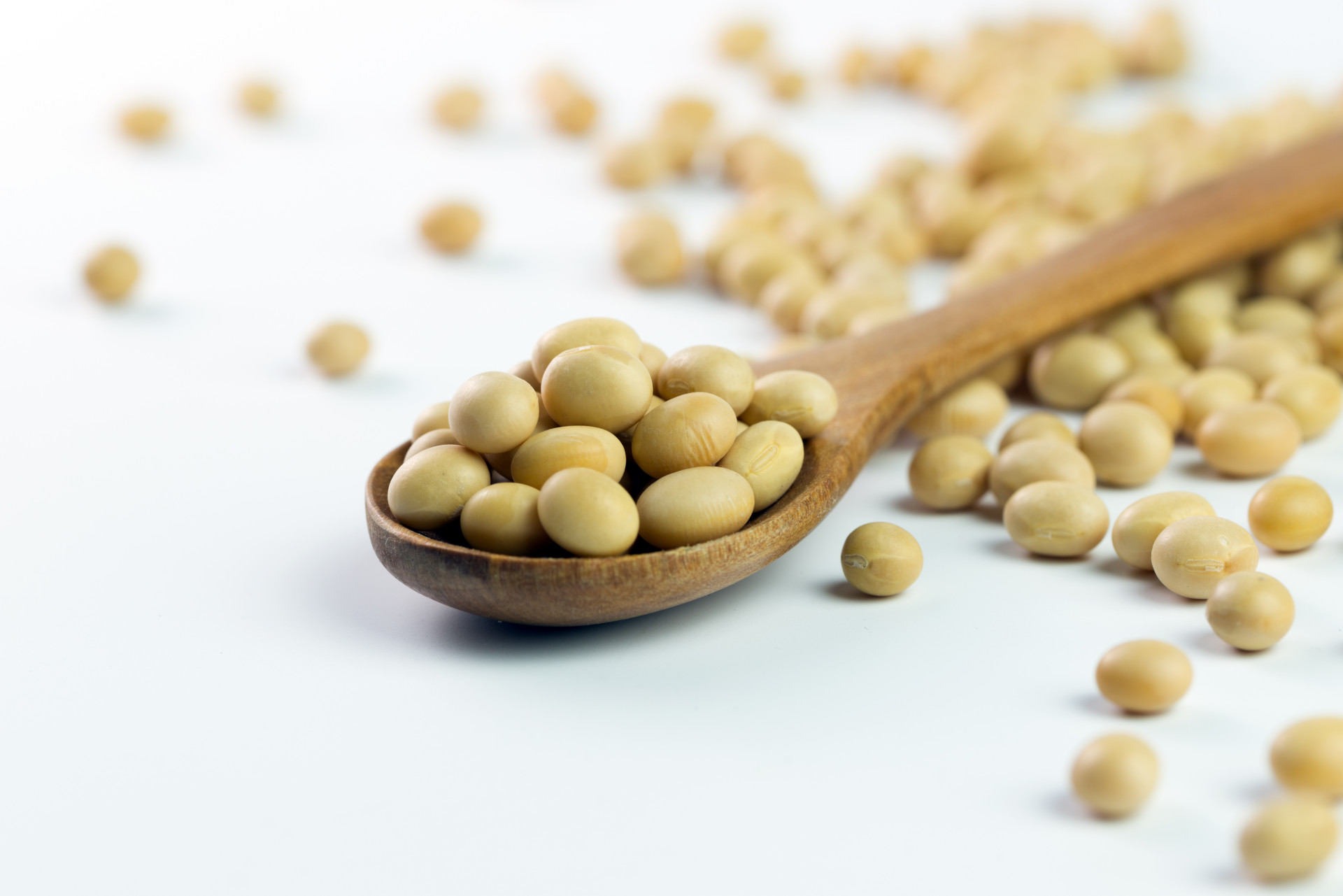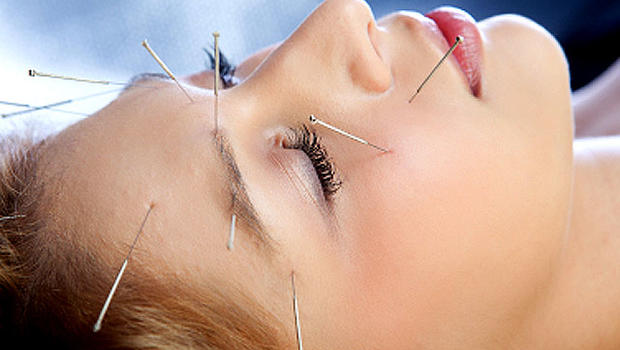

After reaching a certain age, a woman’s ovaries stop making eggs and there is less production of hormones like estrogen and progesterone that regulate menstruation and fertility. Gradually, menstrual cycles become irregular and eventually stop. Menopause is confirmed when a woman has no period for 12 consecutive months.
This process normally happens between ages 45 and 55, according to the National Institute on Aging. The average age is 51, but some women can even enter menopause before age 40.
At times, menopause can be triggered by medical procedures, such as a hysterectomy, chemotherapy and radiation therapy, or primary ovarian insufficiency condition.
While going through menopause, fluctuating levels of estrogen and progesterone can cause symptoms like hot flashes, night sweats, tired feet, insomnia, depression, vaginal dryness, bladder problems, thinning hair, dry skin, breast pain, mood swings and memory problems.
Most women do not need treatment for menopausal symptoms because they go away by themselves. However, if you are bothered by the symptoms, there are many natural ways to deal with them.
Here are the top 10 ways to beat menopause symptoms.
1. Flaxseed
Ground flaxseed is considered a good remedy for menopause symptoms like hot flashes. Flaxseed has omega-3 fatty acids and lignans, which act as phytoestrogens.

According to a 2007 study reported in the Journal of the Society for Integrative Oncology, flaxseed can reduce hot flashes by 50 percent in menopausal women. It helps improve the estrogen levels in the body, in turn reducing the intensity of hot flashes as well as vaginal dryness.
- Take one tablespoon of ground flaxseed two or three times daily with lots of water.
- You can also sprinkle ground flaxseed on soups, salads or smoothies.
2. Apple Cider Vinegar

Apple cider vinegar is a popular folk remedy to beat menopause symptoms. Raw and unfiltered apple cider vinegar is effective in reducing the incidence and intensity of hot flashes and night sweats, two of the most common symptoms of menopause.
- Mix one to two tablespoons of unfiltered apple cider vinegar in a glass of water.
- Drink this tonic in the morning to help remove toxins and regulate hormones.
3. Soy
Soy products have also been found to be very effective in treating many menopause symptoms. The isoflavones in soy products help balance hormone levels and have some estrogenic activity.

A comprehensive study by researchers at the Bowman Gray School of Medicine in North Carolina found that women who took a phytoestrogen-rich soy supplement reported a significant decrease in the severity of their hot flashes.
- Try to drink two glasses of soy milk daily.
- You can also have a few slices of soy linseed bread daily.
- Also include more soy products in your diet.
4. Vitamin E

- Topical application of vitamin E oil to the vagina will help improve lubrication.
- A daily dose of 600 IUs of natural vitamin E is recommended to reduce hot flashes. Take one 200 IU capsule with every meal, for a total of three per day.
5. Black Cohosh
For hot flashes and night sweats, black cohosh is an age-old remedy. In a pilot study of 704 women, 49 percent of those given black cohosh extract experienced complete relief of menopausal symptoms within a few days.

The reason is that black cohosh acts as a phytoestrogen. It also contains a small amount of salicylic acid that has anti-inflammatory and pain-relieving qualities. Black cohosh also helps ease feelings of depression.
You can take black cohosh in many forms: capsules, tablets or mixed with water. Always talk to your doctor about how to take it safely.
Note: Women with liver disease should not take black cohosh.
what are early menopause symptoms, what are the best natural remedies for menopause symptoms, what is menopause symptoms in men
6. Chasteberry

- Mix one teaspoon of minced chasteberry herb in one cup of hot water. Cover and steep for 15 minutes. Strain and drink it. You can have up to three cups daily.
- You can opt instead to take 400 to 500 mg of standardized extract (containing 0.5% agnuside) or 40 drops of a tincture added to a glass of water once daily for at least three months. However, it is best to consult an herbalist before taking chasteberry.
7. Cinnamon

- Include cinnamon in your diet by adding it to your herbal teas, stews, smoothies, baked goods and other foods.
- To get rid of rough and tired feet that occur during menopause due to changes in hormone levels, add two tablespoons of cinnamon to a small bucket filled with warm water. Soak your feet in this water for 15 minutes. Do it on regular basis as needed.
8. Acupuncture
Acupuncture, an ancient healing art that focuses on rebalancing the body, is also believed to bring relief from some of the symptoms of menopause, especially hot flashes and anxiety.

A study done at Stanford University School of Medicine found the severity of hot flashes is decreased in women who opt for acupuncture treatment. Another study done at the University of Pittsburgh found that acupuncture showed a decrease in hot flashes, improvement in sleep disturbances and improvement in mood changes.
If you are interested in acupuncture treatment, get it done by a physician who is trained in acupuncture. Treatment duration will vary from one person to another. Read Easy, Natural Ways to Stop Hot Flashes Ebook, get yours by clicking here
9. Yoga
Symptoms like mood swings, sleep disruption, night sweats and hot flashes can be reduced to a great extent by practicing yoga.
Multiple studies have shown that yoga helps one experience these symptoms with ease and comfort as well as makes the body strong to bear with the changes it goes through during menopause.

Some of the common yoga practices that can help reduce menopause symptoms are postures (asana), controlled breathing (pranayama) and meditation (dhyana).
Take a gentle yoga class once or twice a week to derive the most benefits. If yoga is new for you, it’s best to take a class to learn how to perform the postures and proper breathing techniques.
10. Exercise
Regular exercise will not reduce menopause symptoms, but it can help relieve stress, improve mood, prevent cognitive decline and improve the quality of life for many women during this challenging time. Also, exercise can alleviate some of the sleep problems that many menopausal women experience. Experts recommend at least 30 minutes of moderate activity per day, most days of the week. Aim to get at least two and one-half hours of moderate-intensity aerobic activity in a week, and do muscle-strengthening exercises two days a week. Other deep breathing, stretching and pelvic floor exercises are also recommended.

Additional Tips
- Try to notice what triggers your hot flashes and avoid those things.
- To reduce hot flashes and night sweats, drink a glass of cold water.
- Take vitamin B supplements after consulting your doctor.
- Try to expose your body to early morning sunshine for at least 15 minutes to get vitamin D.
- If you’re overweight, try to lose weight.
- Avoid large meals right before bedtime.
- Try drinking something warm before bedtime, such as caffeine-free tea or warm milk.
- Get enough sleep to help you feel your best.
- Decrease vaginal discomfort by using water-based vaginal lubricants or moisturizers.
- Stay sexually active to help increase blood flow to the vagina.
- Cut back on coffee and alcoholic drinks.
- Don’t smoke as it will aggravate your symptoms.
With these tips and suggestions, many of the signs and symptoms associated with menopause will go away naturally and help you to lead a healthy life.
Get the very BEST in skin care, nutritional supplements, and other herbal health products. Get more info here
Resources:
http://www.ncbi.nlm.nih.gov/pubmed/17761129
http://www.ncbi.nlm.nih.gov/pmc/articles/PMC3122509
http://www.ncbi.nlm.nih.gov/pmc/articles/PMC3296386
http://www.fertstert.org/article/S0015-0282%2806%2901005-3/abstract https://umm.edu/health/medical/altmed/herb/black-cohosh













Post a Comment